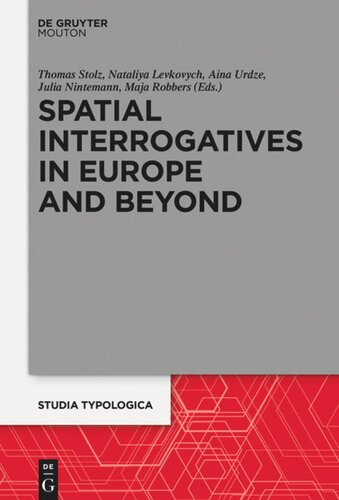

Most ebook files are in PDF format, so you can easily read them using various software such as Foxit Reader or directly on the Google Chrome browser.
Some ebook files are released by publishers in other formats such as .awz, .mobi, .epub, .fb2, etc. You may need to install specific software to read these formats on mobile/PC, such as Calibre.
Please read the tutorial at this link: https://ebookbell.com/faq
We offer FREE conversion to the popular formats you request; however, this may take some time. Therefore, right after payment, please email us, and we will try to provide the service as quickly as possible.
For some exceptional file formats or broken links (if any), please refrain from opening any disputes. Instead, email us first, and we will try to assist within a maximum of 6 hours.
EbookBell Team

4.7
26 reviewsThe extant generalizations about the grammar of space rely heavily on the analyses of declarative sentences. There is a need to check whether these generalizations also hold in the domain of interrogation. To this end this book analyzes data from some 450 languages (including non-standard varieties). The focus is on paradigms of spatial interrogatives such as English where, whither and whence and their internal organization. These paradigms are checked for recurrent patterns of morphological mismatches (such as syncretism) and different degrees of complexity (e.g. the number of segments). The data-base consists of a large parallel literary corpus (Le petit prince and translations thereof) which is complemented by further sources of information such as descriptive grammars. The data are analyzed from a synchronic perspective. However, diachronic issues are addressed unsystematically, too. It is shown that the distribution of phenomena which characterize paradigms of spatial interrogatives are subject to areal-linguistic factors. This is the first typological study of spatial interrogatives. It provides new insights for students of the grammar of space, morphological paradigms, and language typology.